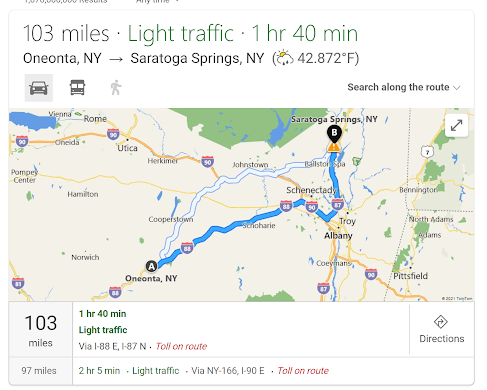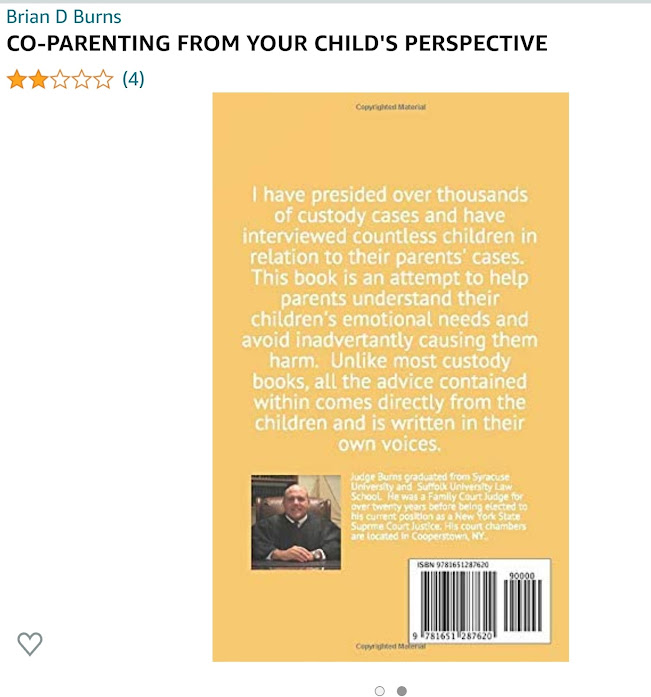A lot is being said lately about "disinformation", "misinformation" etc.
The current US President even created a Disinformation Governance Board - conspicuously,
- during midterm elections to Congress campaign,
- when Democrats' disastrous policies on many matters are driving the country's economy off the cliff,
- when Democrats have a reasonable fear to lose their majority in the House, and
- when there is a possibility that social media giants will not be able to control information going to voters about political candidates in leftist lockstep - like it happened in 2020 (because of a rich "bad boy" Elon Musk's takeover of Twitter).
Little does an average New York State voter knows though that disinformation/misinformation of voters is and has long been the main LICENSING REQUIRMENT of all New York State attorneys.
Here is proof.
This was the state of things in 1880:
“No class of the community ought to be allowed freer scope in the expression or publication of opinions as to the capacity, impartiality or integrity of judges than members of the bar. They have the best opportunities of observing and forming a correct judgment. They are in constant attendance on the courts. Hundreds of those who are called on to vote never enter a court-house, or if they do, it is only at intervals as jurors, witnesses or parties. To say that an attorney can only act or speak on this subject under liability to be called to account and to be deprived of his profession and livelihood by the very judge or judges whom he may consider it his duty to attack and expose, is a position too monstrous to be entertained for a moment under our present system,” Justice Sharwood in Ex Parte Steinman and Hensel, 95 Pa 220, 238-39 (1880).
This is the state of things in 2018 (a NY attorney "temporarily" suspended for criticism of a judge in 2018 - and remains suspended until now):
"As to charges 4 to 6, respondent accused the court of blatant political bias and corruption and disparaged his adversaries. As the Referee found, "[n]either the Code nor the Rules 'obligates,' much less permits, a lawyer to chastise a judge for what the lawyer speculates is corrupt political behavior on that judge's part in presiding over a matter or to effectively threaten the judge that he would be investigated by the Office of Judicial Conduct and the Department of Justice unless he reversed his opinion. Yet Respondent did so repeatedly."
(And, before this case, there were many more cases providing for the same: the lawyer may not exercise his client's 1st and 14th Amendment right to criticize a judge to obtain federal constitutional right of impartial judicial review, it is a "hanging offense" and a professional suicide for a lawyer, notwithstanding that ensuring that their clients' constitutional rights are observed by the government may be the lawyer's professional duty - as Justice Sharwood stated in 1880).
And, criticizing judicial bias and corruption is a hanging offense for a lawyer in New York notwithstanding the fact that the U.S. Supreme Court has, without authority, granted absolute immunity for MALICIOUS AND CORRUPT CONFUDCT IN OFFICE to themselves and to all American judges in 1978.
Where there is immunity from lawsuit for corruption, there will be rampant corruption, and there is. Remember the phrase - "power corrupts, absolute power corrupts absolutely"?
But, the most knowledgeable witnesses, expert and factual witnesses, of this corruption and/or incompetence of judges, lawyers, are gagged by the convenient self-serving rule of their regulators, judges, requiring lawyers, as the main condition of keeping their licenses and livelihood, TO NOT INFORM VOTERS OF LACK OF QUALIFICATION OR INTEGRITY OF JUDGES AND JUDICIAL CANDIDATES:
Of course, this little rule is completely unlawful from many points.
1. The rule is unconstitutional
The rule violates the 1st Amendment of the Federal Constitution (which the creators of this rule, New York judges, have sworn to uphold, each and every one of them).
The rule is a very obvious PRIOR RESTRAINT OF POLITICAL SPEECH aimed at information flow to voters regarding certain political candidates, based on the content of that information.
Such prior restraints on speech are PRESUMPTIVELY unconstitutional (according to a long string of US Supreme Court precedents). Of course, that same US Supreme Court refuses, as a matter of policy, for half a century at least, to address unconstitutional discipline of lawyers based on this rule.
In United States v Alvarez, in 2012, the U.S. Supreme Court has ruled that even false statements may be constitutionally protected, and that this margin of error is necessary for the democracy to exist.
Yet, in the above quoted disciplinary rules created by New York judges for New York lawyers the ability of lawyers to practice their profession is CONDITIONED BY THE GOVERNMENT on LYING BY OMISSION to voters, NOT INFORMING THE VOTERS of what the lawyer may witness of judicial misconduct and misconduct of judicial candidates.
It is obvious from the Matter of Giorgini quoted above (decision made in 2018, 6 years after and in defiance of Alvarez, 2012) that New York courts are interpreting this rule in their own favor and consider ANY criticism of a judge by a lawyer as "false" and punishable by professional death.
2. The rule is made as a matter of self-interest of the regulator
The U.S. Supreme Court has ruled that a profession regulated by its own members without outside neutral regulator, may be violating federal civil and criminal antitrust laws.
That is a cherry on the cake that the American judiciary would not want to see or apply to its own rule over American attorneys.
It is very obvious that NO PUBLIC OFFICIAL, elected or appointed to represent and act in the best interests of the people and drawing a salary funded by taxpayers, may act IN HIS OWN SELF-INTEREST.
Yet, the rule above is exactly that.
The New York judiciary has legislated (in violation of federal and state requirement for separation of powers) that people may only represent other people in court on a condition that they will keep mum about misconduct of judges and other attorneys (who may become judges in the future).
This is behavior of organized crime, it is obviously illegal.
Note that for some interesting reason the rule does not prohibit lawyers to criticize any other members of the government or candidates for political offices - other than their own regulators, judges.
3. Parallel system of adjudication of what is a false statement against a judge or judicial candidate
How can it even be proven that a lawyer has made a supposedly false statement of fact against a judge or judicial candidate?
Of course, if laws would be followed, then the judge or judicial candidate must SUE the lawyer for defamation.
You know how far this lawsuit will get?
Not very far, for sure.
Because, for over half a century already, the U.S. Supreme Court has ruled that political figures suing for defamation have an elevated burden of proof.
They must prove NOT ONLY that the statement was false, but that ALSO it was made with a deliberate malice - an impossible standard to meet in cases of political criticism.
So, if judges or judicial candidates SUE lawyers participating in political process and giving to voters negative information about judges and judicial candidates that they have acquired (like Justice Sharwood said back in 1880) by constant attendance in court and by observing that same misconduct every day - they get nothing.
Their case gets dismissed.
Even if the case DOES NOT get dismissed, judges who sue for defamation will expose themselves to discovery, depositions under oath, a trial in front of jury, with embarrassing cross-examination in open court.
NOPE. Judges do not want to be treated equally with any other person claiming that he/she was defamed.
And, judges do not want to be subjected to THEIR OWN SYSTEM OF JUSTICE, the court system - knowing very well how it works.
Instead, judges in the State of New York (and across the country, too) invented for themselves a "separate court system" where rules of defamation and the 1st Amendment does not apply.
They will simply "rule" without any cross-examinations or discovery that whatever the lawyer said in criticism of a judge is bad (not necessarily false) because the lawyer IS NOT ALLOWED TO CRITICIZE A JUDGE for "political bias or corruption" - see Matter of Giorgini again.
==
Moreover, the judiciary has lobbied an dragged into the New York State Constitution and the New York State legislation a requirement that only those people CAN BECOME JUDGES who were "IN GOOD STANDING"/LICENSED by judges for a certain number of years.
Given that the main condition of being "in good standing" with judges is lack of criticism of those same judges for misconduct in office, political bias and corruption - when a judicial candidate tells voters that he/she has "practiced law" for so many years - that means automatically that he/she DID NOT CRITICIZE JUDGES, his/her own regulators, for misconduct that lawyer may know of, for that same number of years.
Also, when a lawyer publicly PRAISES a judge during the judge's re-election campaign, or praises a lawyer trying to become a judge during an election campaign - that may mean only that the lawyer is trying to get his place under the sun cozied up, and to protect himself and his clients from future potential judicial wrath.
Nothing to do with the actual supposed good qualities of the judicial candidate.
Look how the leftists' darling John Oliver (he is not an attorney, and he is a leftist, so he is safe from such "disciplinary rules") criticized judicial elections back 7 years ago.
Holding aside Oliver's political bias (nearly all supposedly bad judges in the video were Republicans) and lack of knowledge of the law (his discussion regarding Alabama Supreme Court judge Roy More and his stance that U.S. Supreme Court decisions are not part of the Supremacy Clause - they are not - and thus not Supreme law of the land), he makes many valid points about, let's say
- perceived obligation of judges to rule in a certain way to get re-elected;
- judges hitting on lawyers for money to run their re-election campaigns, or attorneys hitting other lawyers for money to get elected as judges and then "work off" the money given - we know only about the most scandalous and egregious schemes that become public;
- irrelevant virtue-signalling by judges to voters etc.
- that we allow our state Constitutions and state laws to restrict us in who we elect as judges only to the member of the legal profession that is gagged by the judicial mafia into NOT INFORMING voters of the negative qualities of judicial candidates;
- that we allow the judiciary to regulate lawyers, shooting ourselves in the foot and depriving ourselves, both as information as voters, and of independent representation in court.






















